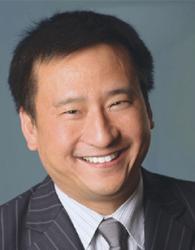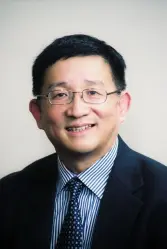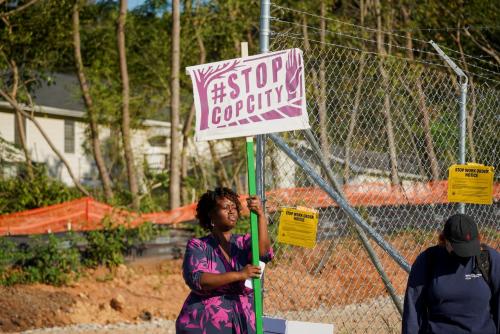

2:00 pm EDT - 4:15 pm EDT
Past Event
On Thursday, May 20, the Brookings Institution hosted an event in honor of Asian American and Pacific Islander Heritage Month, featuring keynote remarks from Representative Grace Meng (D-NY) and Representative Andy Kim (D-NJ) on the surge of racial violence against the Asian American community. Their contributions were followed by two panel discussions examining the domestic and foreign policy implications of anti-Asian bias and racism.
Following opening remarks from Brookings President John R. Allen, Representative Meng discussed the COVID-19 Hate Crimes Act, which aims to strengthen hate crime reporting by expediting the review process of COVID-19 hate crimes and addressing reporting problems at the local level. The act, championed by her and Senator Mazie Hirono (D-HI), passed both the House and Senate earlier that week. Representative Kim then detailed his experience with discrimination in his previous role at the State Department, including being banned from working on issues related to Korea due to being Korean American. He urged viewers to consider how U.S. foreign policy affects Asian Americans, and how improperly handling the U.S.-China rivalry can usher a new era of xenophobia in America.
Following the keynote addresses, Nicol Turner-Lee, senior fellow in Governance Studies and director of the Center for Technology Innovation at Brookings, moderated a panel on domestic policy, which consisted of Frank H. Wu, president of Queens College; Willow Lung-Amam, nonresident senior fellow in Governance Studies at Brookings; and Janelle Wong, professor of American Studies at the University of Maryland. The conversation explored the spike in anti-AAPI hate incidents, the compounding historical circumstances surrounding these incidents, and the breadth of the AAPI community’s experiences and impact on American history.
Wu provided historical context by positing that the Black and white racial paradigm in the United States overshadows the Asian American experience. He further explained the history of the term “Asian American” as one of solidarity with the struggles of other minority groups in the country. Wu pointed to the new awareness of the long-time systemic issues that the AAPI community faces but noted that much of the denial of the racial nature of hate incidents remains.
Lung-Amam argued that the model minority myth is a product of white supremacy that pits non-white groups against each other. She also challenged the construction of the AAPI community as monolithic and homogenous, cautioning that it pits Asian Americans against other non-white, minority groups and perpetuates intra-ethnic discrimination within the broader AAPI community. Lung-Amam discussed the discriminatory practices of racial zoning as one of the many threads connecting the AAPI and African American civil rights movements that is lost when these narratives of the model minority myth and the AAPI community dominate.
Wong presented several statistics highlighting the significant political presence of the AAPI community. Specifically, she emphasized the high rates of reports of racial discrimination from members of the Pacific Islander community and explained how colonialism plays a role in why Pacific Islanders and Native Americans continue to experience discouraging rates of discrimination and hate incidents.
The three panelists also called out anti-Black sentiments within the AAPI community and emphasized the need for coalition-building through solidarity and an understanding of shared histories. Wong urged Asian Americans at the forefront of dismantling equity programs, such as affirmative action and the integration of magnet schools, to stop and work toward solidarity for the sake of all minority groups.
Following the domestic policy panel, Cheng Li, senior fellow in Foreign Policy and director of the John L. Thornton China Center at Brookings, moderated a panel on foreign policy, which consisted of Diana Fu, associate professor of political science at the University of Toronto and nonresident fellow in Foreign Policy at Brookings; Russell Hsiao, executive director of the Global Taiwan Institute; and Jessica Lee, senior research fellow at the Quincy Institute. The panelists emphasized the challenge of confronting China’s antagonistic actions while simultaneously preventing the escalation of the U.S.-China rivalry from negatively impacting Asian Americans at home.
Fu began by commenting on the roots of Canada’s anti-Asian history and the current rise in anti-Asian sentiments, highlighting the internationality of the challenges Asians and Pacific Islanders face. She urged against the anti-solidarity positions on Chinese social media, particularly from older generations of the Asian community in the U.S., Canada, and elsewhere, who sought to deter Asians from standing in solidarity with the Black Lives Matter protestors following the murder of George Floyd.
Hsiao asserted that U.S. foreign policy impacts U.S. domestic conditions, and vice versa. He argued that anti-Asian sentiment in the domestic sphere, coupled with anti-China sentiment in the foreign policy sphere, go beyond partisan politics, and that both sides of the political spectrum have a role in remedying these respective tensions.
Lee commented on how rising tensions with China, heightened during the Trump administration, directly impacted the job environments for Asian Americans. She implored future administrations to de-escalate tensions with China, while appropriately engaging and criticizing human rights abuses in ways that don’t foster misplaced hatred toward Asian Americans and the Asian diaspora.
Likewise, the panelists described the escalating discourse by U.S. policymakers toward China as reminiscent of the Cold War era and argued that it has contributed to cyclical antagonism between the two superpowers, leaving the AAPI community vulnerable to collateral damage. The panelists finished with an earnest discussion about the responsibility of policymakers to conduct policy that mends the tensions between the United States and China and stands firm against China’s abuses, while also addressing the damage that this hostile rhetoric against China has done for Asians and Pacific Islanders in the United States, Canada, and around the world.
2:00 pm - 2:05 pm
2:05 pm - 2:25 pm
2:25 pm - 3:20 pm
Moderator

Panelist


3:20 pm - 4:15 pm
Moderator


Gabriel R. Sanchez, Edward D. Vargas, Daniel F. López-Cevallos, Carmen R. Valdez, Ana Luisa Oaxaca Carrasco
June 24, 2025

Howard Henderson, Mikayla Wallace
March 11, 2025

Alyasah Ali Sewell, Keon L. Gilbert, Rashawn Ray, Jennifer D. Roberts
January 31, 2025